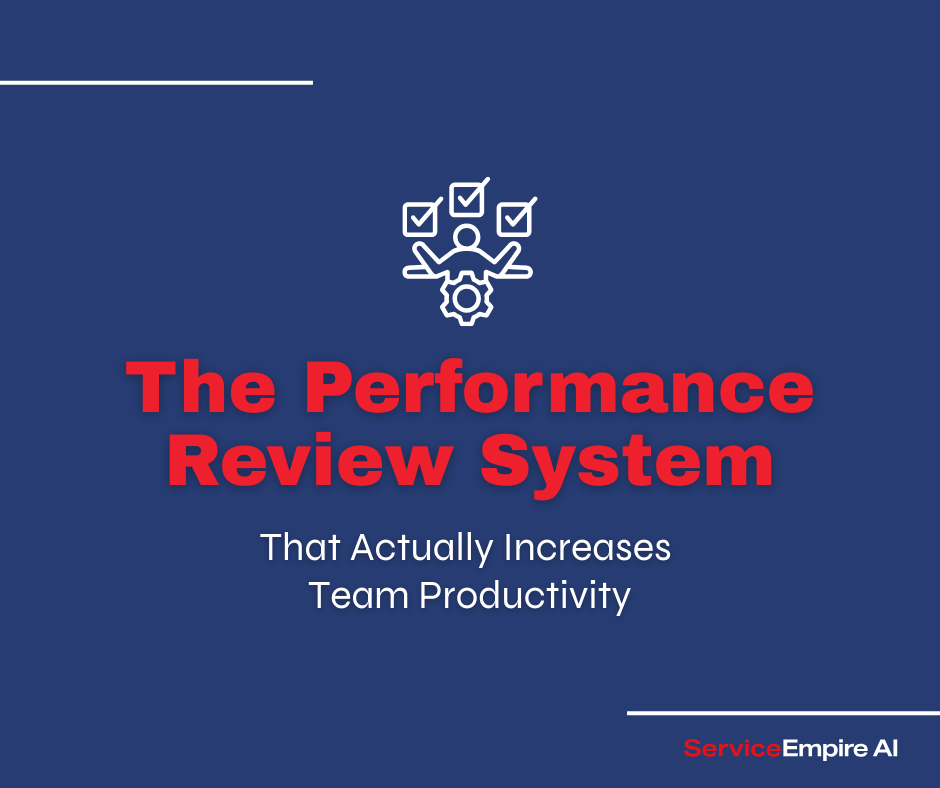
Plumbing is one of the most reliable and important trades, with jobs expected to grow 6% by 2033. The average yearly pay is $62,970, which is higher than many field service jobs. Along with job security and good pay, plumbing offers a clear path to grow your career, especially by becoming a certified plumber.
In this field, people often confuse "certification" and "licensing." A certified plumber has passed a test to prove their skills, while a license is the legal right to work in a certain area. Both are important for doing safe and proper plumbing work.
This guide explains how to become a certified plumber, including the types of certifications, state rules, training options, test tips, costs, and ways to grow your career.
Understanding Plumber Certification vs. Licensing
The distinction between certification and licensing is crucial for plumbers navigating their career path. Why? Because these credentials serve different purposes and are administered by different authorities.
What is Plumber Certification?
Plumber certification typically refers to credentials issued by industry organizations or educational institutions that verify a plumber's knowledge and skills in specific areas. Key characteristics include:
- Demonstrates competency in specific knowledge areas or skills
- Often voluntary (though may be required for certain specialized work)
- Typically issued by industry associations or educational institutions
- May focus on specialized areas (backflow prevention, medical gas, etc.)
- Often used to enhance professional standing and marketability
- Usually requires passing a standardized exam
Common certification providers include the Plumbing-Heating-Cooling Contractors Association (PHCC), the American Society of Sanitary Engineering (ASSE), and the International Association of Plumbing and Mechanical Officials (IAPMO).
What is Plumber Licensing?
Plumber licensing refers to the legal permission to practice the trade, issued by state or local government authorities:
- Required by law to legally perform plumbing work in most jurisdictions
- Issued by state licensing boards or local municipalities
- Focuses on protecting public health and safety
- Typically requires a combination of education, experience, and examination
- Violation of licensing requirements can result in legal penalties
- Often has multiple levels (apprentice, journeyman, master)
Certification vs. Licensing Comparison
Types of Plumber Certifications
The plumbing profession features a hierarchical certification structure that reflects increasing levels of knowledge, skill, and responsibility. Understanding these levels helps map out a clear career progression path.
Apprentice Plumber
The entry point into the plumbing profession:
- Requires no prior experience (though some basic education may be needed)
- Must work under direct supervision of licensed journeyman or master plumber
- Registration or license required in most states
- Typically combines on-the-job training with classroom instruction
- Usually lasts 4-5 years (8,000-10,000 hours of work experience)
- Prepares individual for journeyman examination
Journeyman Plumber
The core professional level for plumbers:
- Requires completed apprenticeship or equivalent experience
- Allows independent work on most plumbing systems
- May supervise apprentices in many jurisdictions
- Must pass comprehensive examination on codes, practices, and theory
- Requires license renewal and continuing education in most states
- Typically requires 4-5 years of experience and 500-1,000 classroom hours
Master Plumber
The highest standard certification for practicing plumbers:
- Requires several years of experience as a journeyman (typically 2-5 years)
- Demonstrates advanced knowledge of plumbing systems, codes, and practices
- Must pass rigorous examination with higher standards than journeyman level
- Often required for business ownership or contracting
- Can design systems and pull permits in most jurisdictions
- Responsible for code compliance and system integrity
- Usually requires license renewal and continuing education
Specialist Certifications
Beyond the standard hierarchy, plumbers can pursue specialized certifications:
Medical Gas Installer/Brazer
- Requires specific training and examination
- Essential for hospital and healthcare facility work
- Typically administered by the National Inspection Testing Certification (NITC)
- Usually requires journeyman or master license as prerequisite
- Must be renewed periodically
Backflow Prevention Tester/Installer
- Focuses on protecting potable water from contamination
- Administered by various organizations including ASSE and IAPMO
- Increasingly required by municipalities and water authorities
- Requires periodic recertification and testing
Green Plumbing Certification
- Focuses on water and energy efficiency
- Includes water conservation techniques and systems
- Growing in demand with sustainability focus
- Offered by organizations like the Green Plumbers USA and IAPMO
Commercial Food Service Technician
- Specializes in restaurant and institutional kitchen plumbing
- Covers grease interceptors, specialized fixtures, and health codes
- Valuable for plumbers focusing on commercial work
State-by-State Plumber Licensing Requirements
Plumbing regulations vary significantly across the United States, with each state establishing its own licensing requirements, examination procedures, and reciprocity agreements.
Licensing Variability
The most significant variations in licensing include:
- State vs. local licensing jurisdiction
- Experience hour requirements (ranging from 4,000 to 10,000 hours)
- Examination content and difficulty
- License levels recognized (some states don't recognize all levels)
- Reciprocity with other states
- Continuing education requirements
- Renewal periods and fees
States with Comprehensive Licensing
The following states have rigorous state-level licensing programs with clear requirements:
- Texas: State-level licensing with multiple tiers and strict requirements
- California: Requires extensive experience and testing with specialized certifications
- Massachusetts: Features rigorous tier system with significant experience requirements
- Minnesota: Comprehensive licensing with strong continuing education requirements
- New York: Varies by city, with NYC having particularly stringent requirements
- Florida: State-level certification with significant insurance and financial requirements
States with Limited or Local Licensing
Some states delegate licensing authority to local jurisdictions:
- Kansas: No state-level license; regulated by local municipalities
- Missouri: State has limited oversight; primarily regulated locally
- Michigan: Primarily local licensing with some state oversight
- Illinois: Chicago and other municipalities have their own requirements
- Pennsylvania: State license for contractors, but local requirements vary
Reciprocity Agreements
Some states have reciprocity agreements that recognize licenses from other jurisdictions:
- Many states in the Northeast have reciprocity agreements with each other
- Some Western states recognize each other's licenses
- Reciprocity typically requires similar examination and experience requirements
- License holders must still apply for recognition in the new state
- Additional testing on local codes may be required
Educational Pathways to Plumber Certification
Multiple educational pathways can lead to plumbing certification, each with advantages depending on individual circumstances and goals.
High School Preparation
Secondary education can provide a strong foundation for plumbing:
- Mathematics courses (algebra, geometry)
- Physics and basic sciences
- Shop or vocational classes
- Technical drawing or blueprint reading
- Computer skills for modern systems
- Business courses for future entrepreneurs
Many high schools offer vocational programs or partnerships with technical schools that allow students to begin plumbing training while completing their diploma.
Trade School Plumbing Programs
Dedicated plumbing programs at trade schools offer structured training:
- Programs typically last 9-24 months
- Focus on practical skills and theory
- Often include basic certification preparation
- May provide credit toward apprenticeship requirements
- Cost typically ranges from $5,000-$20,000
- May offer job placement assistance
- Often more hands-on than community college programs
Community College Plumbing Technology Programs
Community colleges typically offer broader education with plumbing focus:
- Associate degree programs (2 years) or certificates (1 year)
- Combination of general education and technical training
- Often more theoretical than trade schools
- May include business management components
- Credits may transfer to bachelor's programs
- Typically lower cost than private trade schools
- May have partnerships with local unions or contractors
Apprenticeship Programs
Apprenticeships combine paid on-the-job training with classroom instruction:
- Traditional path to journeyman status
- Usually 4-5 years in duration
- Earn while you learn model
- Structured progression of skills development
- Operated by unions, contractor associations, or independent programs
- Classroom training typically 500-1,000 hours
- On-the-job experience typically 8,000-10,000 hours
Education Pathway Comparison
Plumbing Apprenticeship Requirements and Process
There's a reason the apprenticeship program has endured for decades. Apprenticeship combines structured on-the-job training with related classroom instruction, which makes it the most comprehensive pathway to becoming a certified plumber.
Finding Apprenticeship Opportunities
Several avenues exist for entering a plumbing apprenticeship:
Union Apprenticeships
- Managed by United Association (UA) locals
- Typically highest pay during apprenticeship
- Structured progression and training
- Apply directly through local union office
- May have waiting lists in some areas
- May require aptitude testing and interviews
Non-Union/Merit Shop Apprenticeships
- Managed by Associated Builders and Contractors (ABC) or Independent Electrical Contractors (IEC)
- More flexible entry requirements
- Varying pay scales
- Apply through local chapters or affiliated contractors
- Recognized in most jurisdictions
Employer-Sponsored Apprenticeships
- Individual companies that run their own programs
- Requirements vary by employer
- May offer immediate employment
- Quality and structure can vary significantly
- Check for state registration/approval
Apprenticeship Requirements
Typical prerequisites for entering a plumbing apprenticeship include:
- Minimum age of 18
- High school diploma or GED
- Valid driver's license
- Physical capability to perform the work
- Drug screening
- Basic math skills assessment
- Interview process
- Clean background check (varies by program)
Apprenticeship Structure
Most plumbing apprenticeships follow a similar structure:
- 4-5 year duration (8,000-10,000 work hours)
- Progressive wage increases (typically starting at 40-50% of journeyman wage)
- 500-1,000 hours of classroom instruction
- Regular progress evaluations
- Increasingly complex work assignments
- Supervision by journeyman or master plumbers
- Preparation for licensing examination
Apprenticeship Costs and Compensation
The financial aspects of apprenticeship vary by program type:
Union Apprenticeships
- Minimal upfront costs (application fees, tools)
- Higher starting wages (typically 45-60% of journeyman rate)
- Structured wage progression
- Benefits often included from start
- Some classroom costs covered by program
Non-Union Apprenticeships
- Modest tuition for classroom training ($1,000-$3,000 annually)
- Starting wages typically 40-50% of journeyman rate
- Wage progression varies by employer
- Benefits may phase in over time
- May need to purchase more tools individually
Apprentice Wage Progression Example:
- First year: 40-45% of journeyman wage
- Second year: 50-55% of journeyman wage
- Third year: 60-65% of journeyman wage
- Fourth year: 70-75% of journeyman wage
- Fifth year: 80-90% of journeyman wage
Exam Preparation for Plumber Certification
Passing the licensing examination represents a critical milestone in becoming a certified plumber. Comprehensive preparation significantly increases success rates.
Exam Content Overview
While specific content varies by jurisdiction, most plumbing exams cover:
Journeyman Examination Topics:
- Plumbing code knowledge (70-80% of content)
- Installation practices and procedures
- Drainage systems and design
- Venting requirements and systems
- Water supply and distribution
- Fixture requirements and installation
- Basic mathematics and calculations
- Blueprint reading and interpretation
- Isometric drawing interpretation
- Materials, tools, and terminology
Master Examination Additional Topics:
- Advanced code knowledge
- System design principles
- Engineering concepts
- Business and contracting knowledge
- Advanced mathematics and sizing
- Specialized systems (medical gas, etc.)
- Management and supervision
Study Resources
Effective preparation typically utilizes multiple resources:
Code Books
- International Plumbing Code (IPC) or Uniform Plumbing Code (UPC)
- State-specific code amendments
- Local jurisdictional requirements
Study Guides
- Licensure exam preparation books
- Practice question compilations
- Code analysis guides
- Illustrated installation guides
Practice Exams
- Official practice tests from licensing authorities
- Third-party practice examination books
- Online practice test subscriptions
- Timed practice sessions
Courses and Classes
- Exam preparation courses (in-person or online)
- Code review seminars
- Focus sessions on challenging topics
- Final review "boot camps"
Effective Study Strategies
Successful candidates typically employ these approaches:
- Begin studying 3-6 months before exam date
- Create a structured study schedule with regular sessions
- Focus on code sections most heavily tested
- Use practice questions to identify knowledge gaps
- Form study groups with other candidates
- Take full-length practice exams under timed conditions
- Review missed questions thoroughly
- Focus on code navigation and lookup skills
Exam Day Tips
On examination day, successful candidates:
- Arrive early and rested
- Bring all required identification and materials
- Pace themselves, allocating time based on question count
- Answer easy questions first, flagging difficult ones for review
- Use code book efficiently with tabs and highlights
- Double-check all calculations
- Review all answers if time permits
- Use process of elimination for challenging questions
Plumber Certification Costs
The financial investment required to become a certified plumber varies based on your educational pathway, location, and certification level.
Training and Education Costs
Apprenticeship Route:
- Application fees: $25-$100
- Basic tools and equipment: $500-$1,500
- Books and materials: $300-$800 annually
- Tuition (if not covered): $0-$3,000 annually
- Total 5-year cost: $1,000-$15,000 (but earning wages throughout)
Trade School Route:
- Tuition and fees: $5,000-$20,000
- Tools and equipment: $500-$1,500
- Books and materials: $500-$1,000
- Total cost: $6,000-$22,500
Community College Route:
- Tuition and fees: $5,000-$15,000
- Tools and equipment: $500-$1,500
- Books and materials: $1,000-$2,000
- Total cost: $6,500-$18,500
Licensing and Examination Costs
Costs vary by jurisdiction and license level:
Apprentice Level:
- Registration fee: $15-$150
- Background check: $0-$75
- Application processing: $25-$100
- Total: $40-$325
Journeyman Level:
- Examination fee: $75-$250
- License issuance: $50-$300
- Application processing: $25-$100
- Total: $150-$650
Master Level:
- Examination fee: $100-$350
- License issuance: $150-$500
- Business licenses (if applicable): $75-$300
- Total: $325-$1,150
Ongoing Costs
Maintaining certification requires continued investment:
License Renewal:
- Journeyman renewal: $50-$200 (typically annually or biennially)
- Master renewal: $100-$400 (typically annually or biennially)
- Specialty certification renewal: $25-$150 per certification
Continuing Education:
- Required hours: Typically 4-16 hours annually
- Course costs: $25-$75 per credit hour
- Annual CE investment: $100-$600
Business Costs (for independent plumbers):
- Liability insurance: $500-$2,000 annually
- Bonds: $100-$500 annually
- Vehicle and tool insurance: $500-$1,500 annually
- Business licenses: $75-$500 annually
- BBB accreditation costs: $500-$6,000 depending on business size
Return on Investment
Despite significant costs, plumbing certification offers strong financial returns:
Salary Progression:
- Apprentice: $30,000-$40,000
- Journeyman: $45,000-$70,000
- Master: $60,000-$90,000+
- Business Owner: $70,000-$150,000+
Most plumbers recoup their total education and licensing costs within the first 1-2 years after achieving journeyman status through increased earnings.
Continuing Education Requirements for Plumbers
Most states require continuing education (CE) for license renewal to ensure plumbers remain current with changing codes, technologies, and best practices.
State CE Requirements
Continuing education requirements vary by state:
- CE hours required: 4-16 hours annually (typical range)
- CE content requirements: Code updates, safety, business practices
- Approved provider restrictions: State-approved vs. open market
- Verification methods: Certificates, online reporting, audits
- Renewal cycles: Annual or biennial most common
Example State Requirements:
- Texas: 6 hours annually
- Florida: 14 hours biennially
- Minnesota: 16 hours biennially
- California: 0 hours (no CE requirement)
- Washington: 16 hours annually
Approved CE Topics
Most jurisdictions approve courses covering:
- Code updates and changes
- Safety and OSHA requirements
- New materials and technologies
- Business management and practices
- System design and engineering
- Green/sustainable plumbing practices
- Specialized systems (medical gas, backflow, etc.)
- Industry best practices
CE Delivery Methods
Continuing education can be completed through:
- In-person classroom sessions
- Live webinars
- Online self-paced courses
- Industry conferences
- Manufacturer training programs
- Trade association seminars
- College or technical school courses
Tracking CE Credits
Maintaining organized CE records is essential:
- Keep all certificates of completion
- Track completion dates and credit hours
- Maintain digital backups of certificates
- Use spreadsheet or calendar for renewal deadlines
- Verify credits are reported to licensing authority (if applicable)
- Keep records beyond current renewal cycle (typically 5+ years)
Career Advancement with Plumbing Certification
The plumbing profession offers multiple advancement paths beyond basic certification, allowing professionals to specialize, increase earnings, and expand career opportunities.
Certification-Based Career Ladder
The traditional progression includes:
- Apprentice Plumber ($30,000-$40,000)
- Entry-level position
- Works under supervision
- Learning fundamental skills
- Journeyman Plumber ($45,000-$70,000)
- Independent work capability
- Comprehensive knowledge of codes
- Can supervise apprentices
- Master Plumber ($60,000-$90,000)
- Design authority
- Permit pulling capability
- Business ownership potential
- Advanced troubleshooting
- Plumbing Contractor ($70,000-$150,000+)
- Business owner
- Multiple crew management
- Project bidding and management
- Administrative responsibilities
Specialized Career Paths
Beyond the standard progression, specialized paths include:
Service Plumber Specialist
- Focus on diagnostics and repair
- Strong customer service skills
- Typically higher hourly rates
- On-call premium pay potential
Commercial/Industrial Specialist
- Larger, more complex systems
- Higher paying projects
- Specialized equipment knowledge
- Often requires additional certifications
Medical Gas Installer/Verifier
- Hospital and healthcare focus
- Requires specialized certification
- Higher pay due to specialization
- Strict regulatory compliance
Plumbing Inspector
- Government or third-party employment
- Requires extensive experience
- Often requires master license
- More regular hours than field work
Related Career Transitions
Plumbing certification can also lead to adjacent careers:
- Plumbing estimator or project manager
- Code official or plan reviewer
- Plumbing instructor or trainer
- Manufacturer's representative
- Plumbing system designer
- Facilities management
Business Ownership Pathway
Many certified plumbers eventually establish their own businesses:
- Obtain necessary experience and master license
- Acquire business licenses and registrations
- Secure appropriate insurance and bonding
- Start small (often as one-person operation)
- Build reputation and client base
- Expand with employees as demand grows
- Potentially specialize in lucrative market segments
Hiring a Certified Plumber as a Consumer
For consumers and property owners, understanding plumber certification helps ensure quality work and compliance with regulations.
Verifying Plumber Credentials
Before hiring, verify a plumber's certification status:
- Ask for license number and verify with state board
- Check certification status through online databases
- Confirm appropriate level for your project (journeyman vs. master)
- Verify specialty certifications for specific work (backflow, etc.)
- Check for complaint history with licensing board
- Verify business registration if applicable
Many states offer online license verification tools on their licensing board websites.
Questions to Ask About Certification
When searching for potential plumbers, inquire about:
- Current license status and level
- Years of experience at current certification level
- Relevant specialized certifications for your project
- Continuing education compliance
- Insurance coverage amounts
- Whether work will be performed by properly licensed personnel
- Who will obtain necessary permits (requires appropriate licensing)
Certification Levels and Project Types
Different project types may require different certification levels:
Apprentice Level (always supervised)
- Basic repairs under journeyman supervision
- Simple installations with oversight
- Not permitted to work independently
Journeyman Level
- Most residential repairs and installations
- Standard commercial maintenance
- System component replacements
- Cannot design systems in most jurisdictions
Master Level
- System design and engineering
- Permit acquisition
- Complex commercial/industrial work
- New construction systems
- Multi-unit building systems
Cost Implications of Certification
Higher certification levels typically command higher rates:
- Apprentice (working under supervision): $50-$80/hour
- Journeyman plumber: $75-$125/hour
- Master plumber: $100-$150/hour
- Specialty certified plumbers: $125-$200/hour
While higher certification levels cost more hourly, they often provide greater efficiency, code compliance, and quality that can reduce overall project costs and prevent future problems.
Conclusion
Becoming a certified plumber offers a clear career path with substantial earning potential and job security in an essential industry. Experts say AI isn’t coming for plumbing jobs anytime soon.
From apprenticeship through journeyman and potentially to master plumber status, each step provides increased responsibility, knowledge, and income potential. The investment in education, training, and examination preparation pays dividends throughout a plumbing career.
While requirements vary by jurisdiction, the fundamental progression remains consistent across the country: gain knowledge through education and training, develop skills through supervised work experience, demonstrate competency through examination, and maintain currency through continuing education. This structured pathway ensures that certified plumbers possess the expertise necessary to protect public health and safety through proper plumbing system installation and maintenance.
Whether you're considering entering the profession, advancing your existing plumbing career, or hiring a plumber for your property, understanding certification requirements and implications helps make informed decisions that impact career trajectory, project quality, and regulatory compliance.
FAQ Section
How long does it take to become a certified plumber?
The typical timeline to become a fully certified plumber is 4-6 years. Most jurisdictions require completing an apprenticeship of 4-5 years (8,000-10,000 work hours) plus classroom training before qualifying for journeyman examination. After passing the exam, you'll receive journeyman certification/licensing. Master plumber certification typically requires an additional 2-5 years of journeyman experience before qualifying for the advanced examination. This timeline can vary based on state requirements, educational background, and whether you attend trade school before apprenticeship.
What's the difference between a licensed and certified plumber?
While often used interchangeably, these terms have distinct meanings as outlined early in this article. A licensed plumber has legal authority from a government entity (state or local) to practice plumbing in a specific jurisdiction. Licensing is mandatory to legally perform plumbing work in most areas. A certified plumber has demonstrated specific knowledge or skills, typically through examination, with certification often issued by industry organizations rather than government entities. Many plumbers are both licensed by their state and certified in specialties like medical gas installation or backflow prevention.
Do plumber certifications transfer between states?
Plumber certifications and licenses generally don't automatically transfer between states, as requirements vary significantly. However, many states have reciprocity agreements that recognize licenses from certain other states with similar requirements. Even with reciprocity, you'll typically need to:
- Apply for license recognition in the new state
- Provide proof of current licensing in good standing
- Document your experience and education
- Possibly take an examination on local code requirements
- Pay applicable fees
Always check with the licensing authority in your destination state before relocating.
How often do I need to renew my plumber certification?
Renewal frequencies vary by jurisdiction and certification type. State licenses typically require renewal every 1-2 years, with most states on annual or biennial cycles. Specialty certifications like medical gas or backflow prevention usually require renewal every 1-3 years. Renewal typically involves:
- Submitting an application
- Paying a renewal fee ($50-$300 depending on license level)
- Documenting completion of required continuing education (typically 4-16 hours per year)
- Updating insurance and bond information if applicable
Check your specific state requirements, as failing to renew on time can result in additional fees or retesting requirements.
Can I get certified as a plumber with a criminal record?
A criminal record doesn't automatically disqualify you from becoming a certified plumber, but it can present challenges. Most licensing authorities conduct background checks and evaluate criminal history on a case-by-case basis, considering:
- Nature and severity of the offense
- How recently it occurred
- Relationship to the plumbing profession (especially theft, fraud, or violent crimes)
- Evidence of rehabilitation
Minor offenses and those unrelated to trustworthiness typically won't prevent certification, especially if they occurred years ago. However, felonies and crimes involving dishonesty may present significant barriers in some jurisdictions. Consider consulting with the licensing authority or an attorney familiar with occupational licensing before investing in training.






